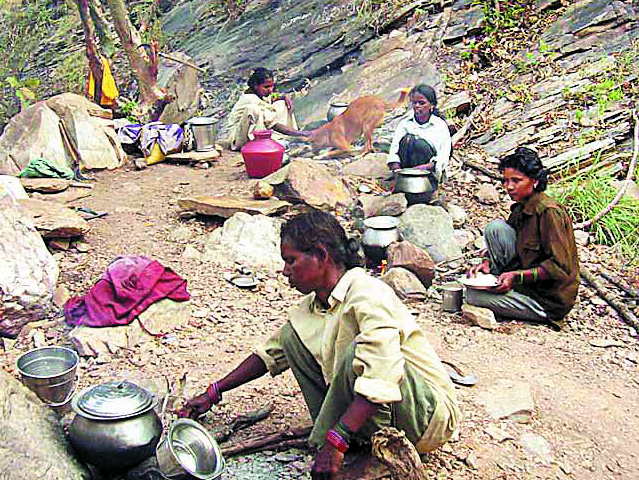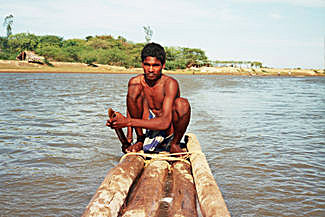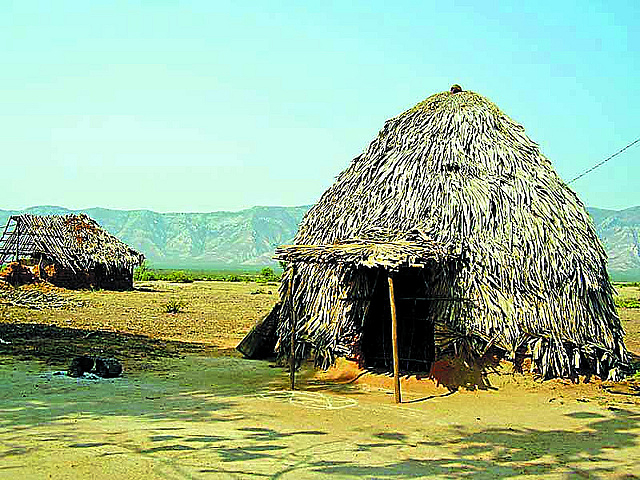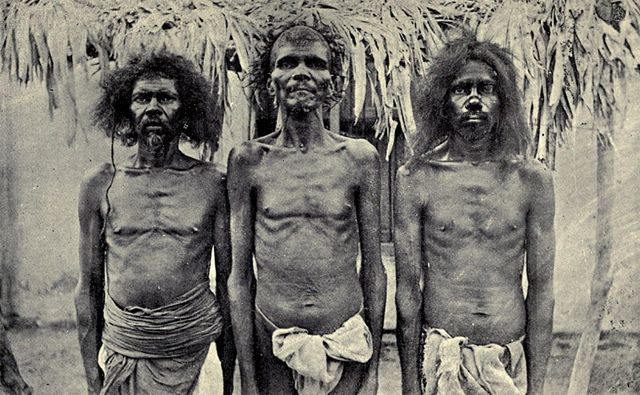For the Yanadi, gaining full titles to lands they have cultivated in Andhra Pradesh for many years can be a breakthrough event. But while they have suffered injustices from higher caste Indians for generations, they have also been attaining their rights, such as their land titles, ever so slowly, according to a perceptive analysis published by the Inter Press Service (IPS) last week.

The journalist, Stella Paul, opens her report by recounting the joy that about 36 Yanadi women express when they enter fields in the village of Nacharwari Pallem, in the Nellore District of Andhra Pradesh, to claim their newly-titled rice fields. With the reporter witnessing the scene, the women dismount from a tractor they have been riding out into the fields. Clutching pink pieces of paper in their hands, they stand together in a circle in the fields, laughing and clapping. They have finally gotten their land titles.
About 20 years ago, each Yanadi family in the village received title to a half-acre under the aegis of a program run by the Integrated Tribal Development Agency, a government body authorized to help the tribal peoples. But the land the Yanadi supposedly owned was firmly controlled by the village elites and it took five years for the Association for the Rural Development (ARD), a group that works for Yanadi development and land rights, to convince the people to start claiming what was theirs by law.

The IPS article reviews the occupations of the Yanadi, all of which are at the very bottom of Indian society. Many of them, labeled as Challa Yanadi, work as menial laborers, including scavenging, and are paid only with leftover foods. Some work for the Reddys, the upper class people of the state, while others, called the Kappalla Yanadi, catch frogs and fish for their sustenance. And there are still some, referred to as the Adavi Yanadi, who live as gatherers and hunters in the woodlands. Although they live in different areas of Andhra Pradesh, they all share a state of deprivation and extreme poverty.
Only 14 percent of the Yanadi are literate; 60 percent live in thatched huts as their ancestors did. They are not represented in either the national parliament or the state assembly. Only about two or three percent of them actually own their land. According to Sheikh Basheer, the head of the ARD, their landlessness is the result of their semi-nomadic lifestyle.

Basheer tells the reporter that upper-class people employed entire Yanadi families, including the children, as laboring units but paid just one of them, in foods rather than in cash. Their employment would continue for generations and the entire family was obligated to remain with their employers. The Yanadis lived under those conditions of virtual slavery without any knowledge of their rights under the laws of India. Basheer and his organization has helped free more than 700 people from such enslavement.
The IPS also spoke with Gandala Sriramalu, a Yanadi elder who did get an education. He is now retired from a government job so he takes the time to visit Yanadi and tell them about the opportunities that are available to them, such as a free education. He tells the reporter that one of the problems with the Yanadi is that they have never learned to act or think on their own. He argues that as a result they are unable to take advantage of opportunities that government agencies or NGOs provide. A good example is the distribution of rights to the land: the Yanadi don’t take advantage of what is available. Instead, their employers often seize those rights.
“The employer uses the Yanadi as a puppet, cultivating the land and consuming the produce. The Yanadi does not speak because he is either scared of losing his job or of being beaten up,” he says.
Chinni Hemalatha, a 32-year-old woman, tells the IPS that her family delayed for a number of years before claiming their land, even after they had been granted full ownership. She expresses pleasure that, as of this coming January when the rains start, she is planning to sow some rice. Another woman, Malli Pramila, has not as yet claimed her plot of land but she is glad that others in her community have their new properties.
One of the hopeful signs is that in dozens of villages in Nellore, the Yanadi are starting to join a network called Yanadi Samakhya created by Sriramalu, the educated elder, with help from the ARD. The new network has investigated such issues as unpaid labor, education, and land rights for the Yanadi and, the reporter writes, they have won some minor battles such as the rights to the minerals on their lands. The network has about 12,000 members now.

Ankaiya Rao is pleased that he has been able to mine quartz stone on the three acres he owns and to sell it to traders. He is able to sell a ton of the mineral for 80,000 rupees ($US 1,200). He has dreams of being able to afford more for his two kids than he was raised with. Others in the village are also starting to mine quartz, though not as much as he does.
Mr. Rao adds that the rich and powerful local elites are becoming envious of the small-scale successes of the Yanadi. They are eyeing the land with envy, planning, he suspects, to try and cheat them out of their properties. “Once that happens, the entire community will eventually lose as landgrab is a common occurrence here,” he cautions.
Sriramalu, predictably, argues that the best way for the Yanadi to protect their lands is by standing united and vigilant against land grabs. “Standing together can be the best way to overcome them all,” he says.